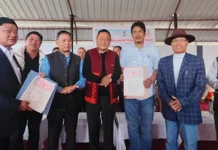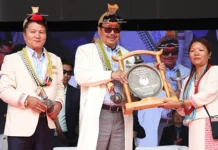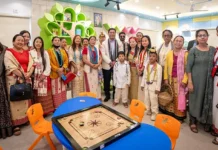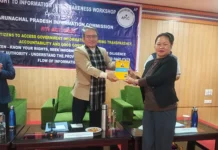ITANAGAR, 30 May: The Government of Arunachal Pradesh is moving forward with an ambitious initiative to set up community radio stations (CRS) across all districts, aiming to revolutionize local communication and public outreach, and to foster socioeconomic and cultural development at the grassroots level.
Chairing a videoconference on Friday, Information and Public Relations (IPR) Secretary Nyali Ete underscored the transformative potential of CRSs, saying, “These centres are designed to disseminate government schemes, policies, and programmes specifically tailored to the unique needs of multiple communities within a single district, rather than treating a district as a homogenous unit.”
He emphasized a “two-way communication model,” where information flows from the government to the community, and crucially, feedback is solicited from the community to influence policy direction.
Broadcast Engineering Consultants India Ltd DGM Khuswinder Singh Bhatia delivered a presentation outlining the guidelines and key objectives of setting up CRSs.
The core principles highlighted by him were: ensuring that government programmes reach individual community needs; mandating that CRSs be operated exclusively by non-profit organizations to promote transparency and community trust; localizing a minimum of 50% of the content, drawing from official departmental resources and featuring community participation through talk shows and discussions; empowering communities to identify and advocate their own socioeconomic progress; utilizing diverse and credible sources, including government departments; and employing feedback mechanisms for real-time policy recalibration.
Discussions also touched upon significant challenges, particularly the need for seamless inter-departmental coordination between the district administration, the IPR Department, and other local bodies to expedite the setup process and facilitate content sharing in local dialects. The sustainability model for CRSs, including active community participation, was also briefly discussed.
The IPR secretary expressed gratitude for the active participation and commitment of all deputy commissioners, and reiterated the government’s strong support for the CRSs, viewing them as indispensable tools for community development and effective information dissemination.
IPR Director Gijum Tali, Deputy Director Marbang Ezing, and PGO Manoj Bhattacharjee also attended the videoconference. (DIPR)





